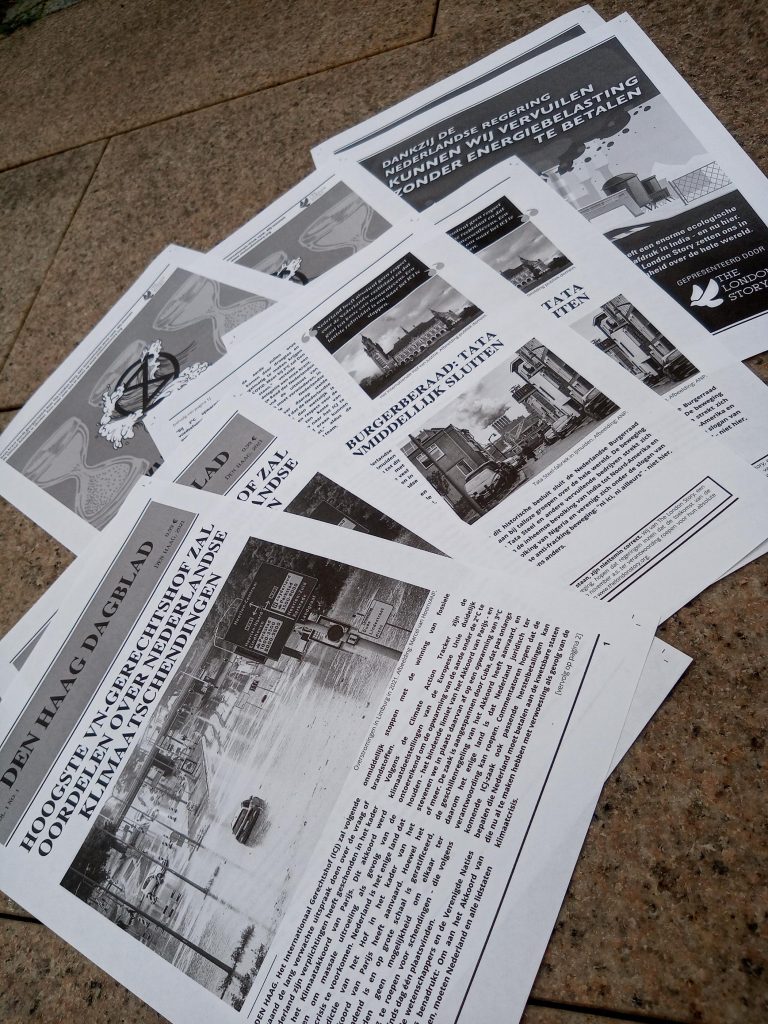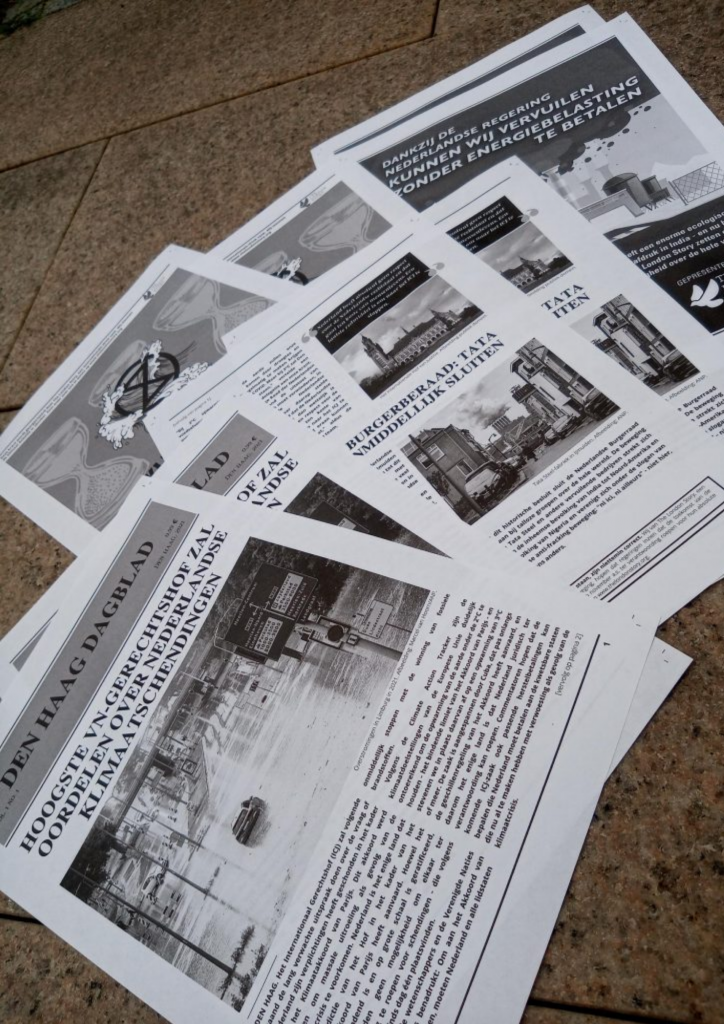Press release, October 4, 2021
In the first week of October, 2000 households in The Hague received the Den Haag Dagblad in their postboxes announcing two breaking news: That the Netherlands are being sued at the International Court of Justice over violations of the Paris Climate Agreement, and that the steel giant Tata Steel had been expelled from the country by a citizen’s assembly. At the bottom of each page: A disclaimer that the stories did not in fact happen, but are visions of possible dedicated climate action.
The authors of the newspaper are Stichting London Story, an international think tank based in The Hague working on promoting accountability and human rights, and The Hague chapter of Extinction Rebellion, an international climate movement active in over 80 countries.
“Enforcing the Paris Agreement at the ICJ, bringing climate justice through citizen’s assemblies – through these stories, we want to provide practical examples of what must come together to combat the climate crisis and ensure a just transition. Our mission is to imagine a better world,” says Alena Kahle of Stichting London Story.
That the newspaper chose the International Court of Justice and a citizen’s assembly, two legally binding mechanisms, as examples is no coincidence. As the United Nations Environment Programme (UNEP) and Columbia University’s Sabin Center for Climate Change Law have highlighted, litigation has become a viable and crucial method to ensure that the climate crisis is adequately addressed. In December 2019, the Supreme Court of the Netherlands ruled in the Urgenda case that the Netherlands must urgently and significantly reduce greenhouse gas emissions, in line with the Netherlands’ legal obligations. The following year, however, environmental assessment agency PBL found that the Dutch government was still emitting about 10% more than legally allowed, leading to renewed calls for a proper enforcement in the face of disrespect for the Court’s ruling. This point is precisely what actors such as Extinction Rebellion and Stichting London Story emphasize: Just as the climate crisis is beyond politics, with the physical facts having been firmly established, legal obligations are to be respected regardless of the current political climate.
Links:
- Stichting London Story: www.thelondonstory.org
- October Rebellion The Hague: https://extinctionrebellion.nl/rebellie/
- Most recent report by Intergovernmental Panel on Climate Change: https://www.ipcc.ch/report/ar6/wg1/
- Petition by plaintiffs against Tata Steel: https://pdfhost.io/v/gCtmkAwei_Tata_Steel_aangifte_defpdf.pdf
- RIVM report on Tata Steel: https://www.rivm.nl/publicaties/tussentijdse-resultaten-gezondheidsonderzoek-in-ijmond
- Urgenda case: https://www.urgenda.nl/en/themas/climate-case/




